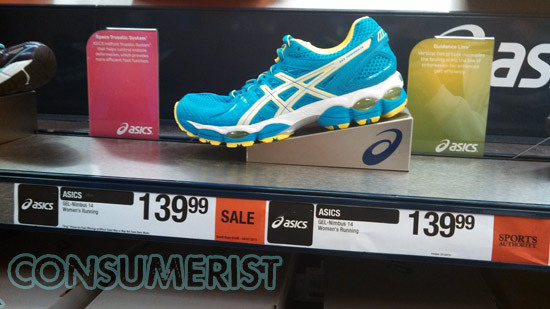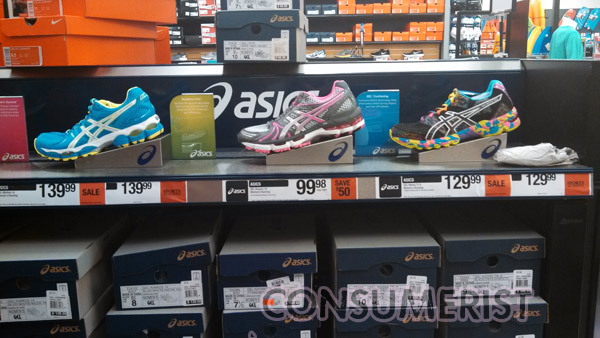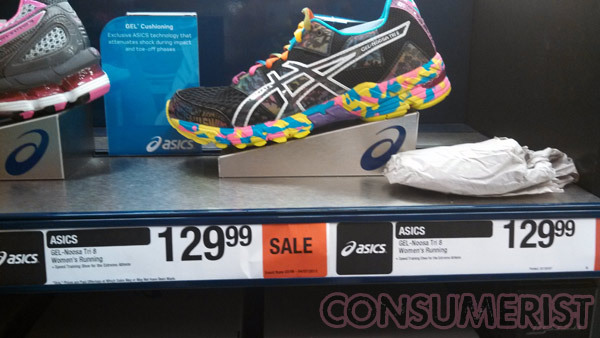Just Because Sports Authority Says It’s Having A “Sale,” That Doesn’t Make It True
Stephanie saw that there was a sale on Asics sneakers at Sports Authority, and she just happened to be interested in buying some. When she reached the store, she noticed that many of the shoes had “Sale” tags on them, but if you moved those tags aside, this didn’t actually represent a “sale.”
Sometimes, a story like this is a simple matter of a reader who notices an amusingly inaccurate sign posted in error, snaps a cell phone picture, and scampers away. That isn’t what Stephanie did. She noticed that “sale” signs all over the sneaker department were messed up, and brought it to the attention of a few employees. They in turn checked with a manager. The manager’s response: this totally is a sale price.



I went to Sports Authority specifically because their ad said Asics shoes were on sale. When I pulled the regular price tags out from behind the ones that said “sale” 2 out of the 3 pairs on this shelf had the same price. I asked a sales associate who said she would ask a manager, and try to get me a sale price. She came back and said they were on sale for 1 cent. Beside the fact that that’s stupid, it isn’t even true. When I pointed this out to a second sales associate, he looked confused and also headed off to consult a manager, but came back to say someone must have made a mistake. When I pointed out there were several shelves worth of mistakes, he just fixed the price tags back to the way they had been. I left without buying anything, but I really would like my shoes, preferably for some type of actual sale price.
Even if the shoes were indeed marked down from, say, $129.99 to $129.98, that doesn’t mean that you can slap a “sale” sign on it. The Federal Trade Commission considers this “deceptive, and notes in their guide:
[The discount] should be sufficiently large that the consumer, if he knew what it was, would believe that a genuine bargain or saving was being offered. An advertiser who claims that an item has been “Reduced to $9.99,” when the former price was $10, is misleading the consumer, who will understand the claim to mean that a much greater, and not merely nominal, reduction was being offered.
Want more consumer news? Visit our parent organization, Consumer Reports, for the latest on scams, recalls, and other consumer issues.

